The day began with high hope; bright morning; good weather – the perfect kind for farming. Irimya Moses left for her farm like some other villagers in Exland, Barkin Ladi local government area of Plateau state, with no slightest knowledge she would not be returning alive. She had spent barely two hours there when around 1pm she was rounded up and killed.
Unknown to the villagers, that single act was just a window for more attacks; the kind that would later claim at least 100 lives with thousands displaced.
“They (the herdsmen) were three in number,” Jacob Dadi, a villager told TheCable on a bright afternoon. “Two ran away but one was caught by the security men and the youth. He wanted to take them to others but other herdsmen struck again and he escaped.
Advertisement
“Before we knew it, almost all parts of the four villages were attacked. From the west, east and south … they were everywhere. The attack was so massive that even the security operatives who were there could not stand it.”
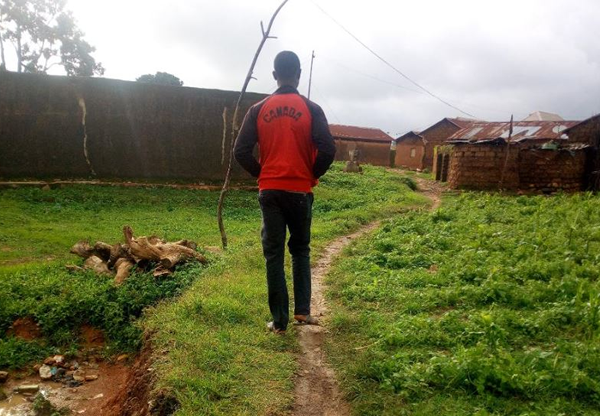
While this was going on, other attacks were also being carried out in some other villages in Barkin Ladi as well as in Riyom. For instance, within the district – Gashis, mourners who had gone for a burial organised by the Church of Christ in Nations (COCIN) in Kakuruk village were also ambushed by suspected herders who “opened fire on them”
In the end of it all, the police confirmed 100 dead but witnesses said “almost 200” were killed.
Advertisement
“We buried some inside their rooms and some others were buried in mass graves,” a youth leader who gave his name as Davou said.
Although the reason for the attack is not yet confirmed, multiples sources said five herdsmen were killed days leading to the incident, with cows rustled.
‘SECURITY OPERATIVES ALSO RAN’
Villagers told TheCable that for at least four hours, beginning from around 2pm, the attackers operated non-stop, “burning whatever they see”: houses, cars – including human beings.
Advertisement
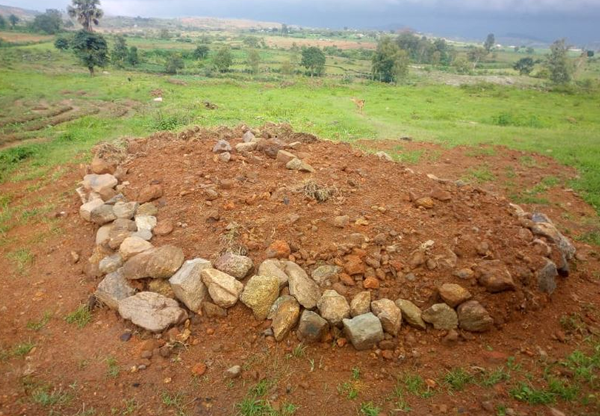
“It was my village, Exland, that was first attacked,” Dadi said. “We noticed they were on the mountains, not also knowing some of them had advanced into the town. So when the shooting started, people started running. On opening the window, I just saw them shooting… shooting!”
The attackers, the villagers said, had come with guns and machetes, splitting into groups. When TheCable visited some of the affected villages, only a few houses and trees were remaining. In Exland, there were at least three graves counted, with one of them having 32 bodies inside. The villagers said most of those dead were hurriedly buried: no funeral rites not to talk of burial ceremonies.
While Dadi was able to escape, he lost an in-law in the attack, as well as “some of my friends and many people I know.” He also said the security operatives who were on ground when the incident happened were overpowered by the attackers.
Advertisement
“The security there couldn’t do anything. Some of them ran with us. They tried to cover us with the small arms they have. That operation lasted for four hours, till Saturday evening. There wasn’t any security, no JTF that came up. The ones with us when it started were trying to cover us till we left there. Even the security ran for their lives. They were just few and their arms were not as good as those people’s own.”
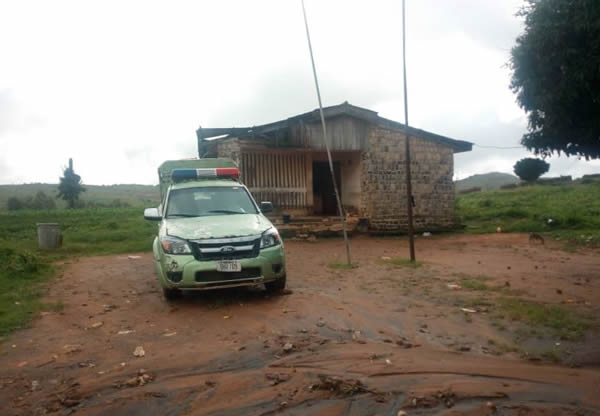
TheCable discovered there were two security outposts located within Exland, a police station and an outpost for soldiers.
Advertisement
THE RACE FOR SURVIVAL
Almost all the villages had been deserted. When TheCable visited Barkin Ladi, only some Fulani residents were seen. One of them who gave his name as Mohammad, said “nothing” when asked why they were still within the area despite the security situation and the tension.
Advertisement
Abigail, a villager from Heipang, told TheCable of how she was able to take her two nephews – aged 11 years and four years – to Jos after the attack: “That Monday, there were no much public transport. Along the road to Mangu and in some other areas, there were no cars. We suffered before we could get a car.
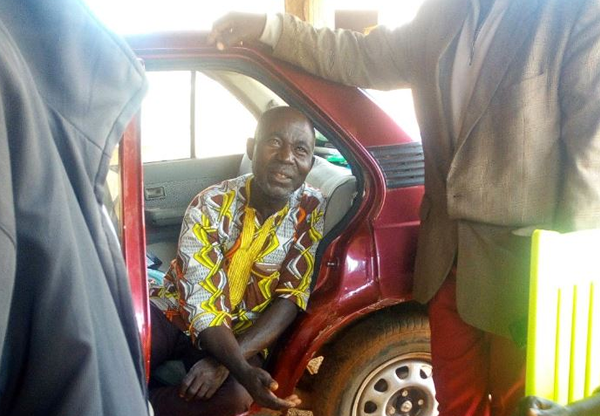
“And the transport fare from Barkin Ladi to Jos which is usually N300 became N1,000. But we said okay, provided we could reach Jos. My mum and dad had to stay back to look after the house. So they were planning that if anything should happen again or the gunshots increase, they will all leave.”
Advertisement
Along the roads leading to the villages were various checkpoints, while a few security patrol team patrolled the area.
MILITARY SAYS ATTACK ‘COULD HAVE BEEN WORSE’
While reacting to the claims from villagers that the security operatives did not respond on time, Umar Adam, spokesman of the special military task force in the state code-named “Operation Save Haven”, said the soldiers in affected areas responded “almost immediately.”
He, however, added that the situation worsened when the troops discovered the gunmen were shooting sporadically from other areas.
“The villages were attacked simultaneously,” he said, adding: “If not for the reaction of the STF personnel, it would have been worse.”
UNTOLD ‘REPRISAL ATTACKS’
Of the three local government areas where deaths were recorded, it was discovered the suspected herdsmen attacked Riyom and Barkin Ladi while reprisal attacks were recorded in Jos south.
TheCable learnt that while the attack in some of the villages were going on, angry youth took over major roads mainly in Jos south and began “hunt for Fulani”
A soldier who witnessed the incident said: “From Maraban Jaman junction, the youth mounted a blockade on the road and any vehicle that comes along, they will search and attack the Fulani inside there. Cars carrying only Fulani will be set ablaze. Some of the victims were just travellers coming from Abuja.
“And by then some of us had already left that area to those villages the attacks were occurring. We had received the alarm from inside not knowing the youth were planning to revenge. I can confirm that 19 persons were killed in the reprisals, especially in Jos south.”
HERDSMEN DENY CARRYING OUT THE ATTACK
The opinion in Plateau and other parts of the country is that the attack was carried out by herdsmen. But the Miyetti Allah Cattle Breeders Association of Nigeria (MACBAN), an umbrella association of the herders, already distanced its members from the incident.
Mohammadu Nura, MACBAN chairman in the state, told TheCable that herders were the ones killed in the incident.
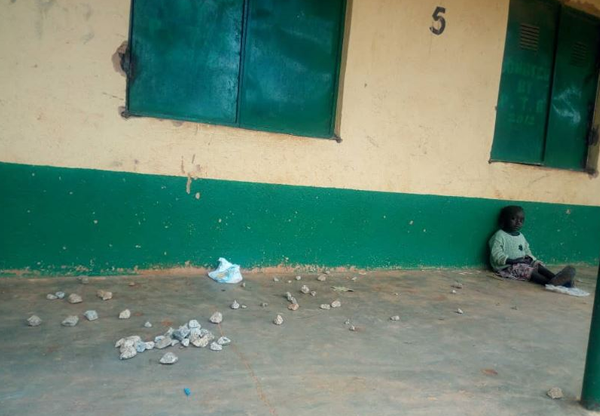
“We had privileged information before that Saturday that people will block roads and search for Fulani. So we informed our people that they should be alert and nobody should use those roads. Unfortunately, on that very day, at 6am, they started blocking roads and were holding sophisticated weapons including riffles, machetes, and shouting that they must kill a Fulani man,” he said.
“They were there till around 1pm (when) they went on rampaging, moving into the hinterland; looking for Fulanis in their villages and cows to kill. They went into the bush and started killing them and their cows. That is the genesis of the crisis. And I said this thing before the vice-president and the community leaders. Nobody disputed the fact.”
‘WE DON’T KNOW IF WE CAN RECOVER’
Recovering from an attack that claimed at least 100 lives may take a long time, and the villagers are not finding the healing process easy, especially with humanitarian needs like lacking in the over 20 internally displaced persons (IDP) camps they are currently staying.
Daliop Mechibi, the traditional ruler of Exland, told TheCable the people were helpless and had not fully recovered.
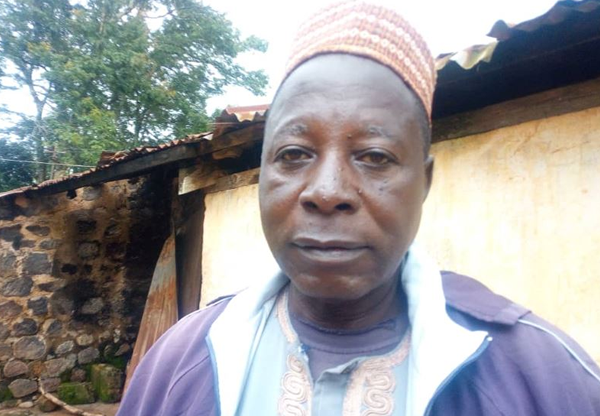
“We have a problem here and we need help,” he said, darting his eyes around like he has just sensed an imminent attack. “The people need to be protected by the security operatives and the government. That is all we are asking.”
“The trauma in still in us, and the pain is still in us. It has not lasted up to a week, so how do you expect us to recover?”
GRIEVOUS HUMANITARIAN SITUATION
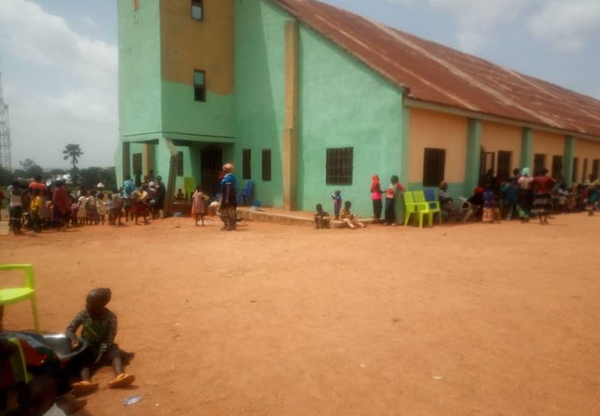
In the wake of the attacks, not more than 32,000 persons were displaced and currently staying in 20 IDP camps, including churches and schools, Juni Bala, director, search and rescue, at the State Emergency Management Agency (SEMA) told TheCable on Saturday.
“We are still discovering more IDPs as we go round,” she added.
When TheCable visited some of the camps on Thursday, it was discovered that necessary measures had not been fully put in place to address the humanitarian situation in the area.
In Heipang village where a church – Korkin RCC Church – has been converted to an IDP camp, the villagers said food and other basic needs were in short supply. The main church building houses their bags and clothing while they spent most part of the day outside the church premises.
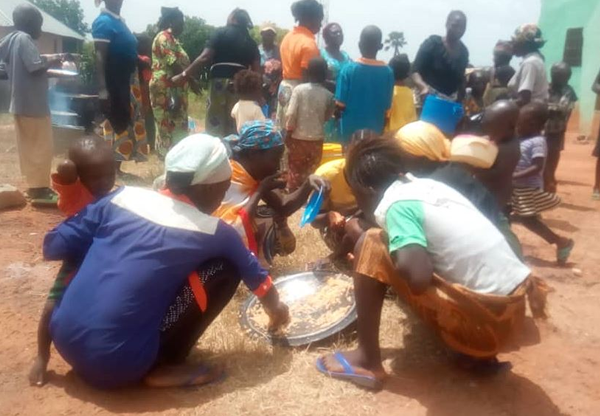
“We have not received any help from anybody since we came here,” one of the camp officials who did not want his name disclosed said. “This food you are seeing is from what we contributed among ourselves. No government official has even visited us here not to talk of bringing us food. Anything you see here was from the villagers and also from organisations like Red Cross.”
The situation was also similar in the other camps within the area where the villagers said no official either from the SEMA or from any other state government agency has come to visit or provide for the villagers.
Bala, however, told TheCable that the agency had started distributing relief materials to the IDPs.
“The government is giving out relief materials right now. We are now at Jos south, Barkin Ladi and Riyom LGAs. We are distributing food and non-edibles – mats, bedding, and a few toiletries,” she told TheCable
She added that the relief materials would be distributed to the IDPs on a daily basis but in a small quantity. “SEMA officials are on ground and are currently attending to the villagers,” she said.
Similarly, Emmanuel Lanre, spokesman to the Plateau governor, told TheCable of what the state government “has done” to alleviate the sufferings of the IDPs.
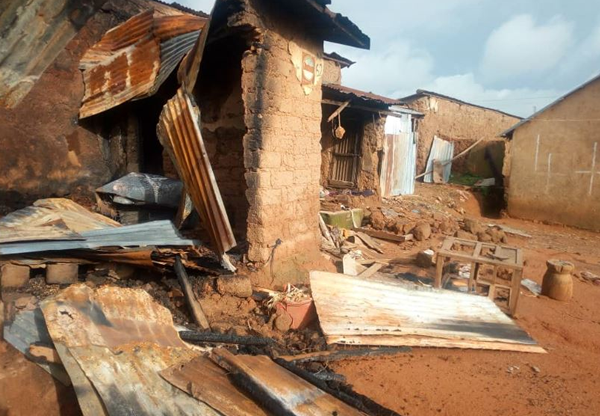
According to him, “relief materials have been distributed by NEMA and SEMA. The governor’s wife has also distributed relief materials to the affected communities. Further to this, the state government has directed and undertaken to pay the bills of all the injured receiving treatments in various hospital.”
PEACE EFFORTS THAT HAVE BEEN IN PLACE BEFORE THE ATTACK AND WHY THEY COLLAPSED
The Berom (locals) and the Fulani crisis dates back to over 10 years but the last major aggression between the two groups was in 2010 when over 20 persons were killed in an attack and counter attacks in Fan, also in Barkin Ladi local government. The peace that has existed since then was as a result of efforts from various stakeholders including non-governmental organisations (NGOs), one of such Youth Initiative Against Violence and Human Rights Abuse (YIAGA). YIAGA, TheCable learnt, has been organising peace meetings among other efforts between the herdsmen and the various communities.
But what went wrong this time?
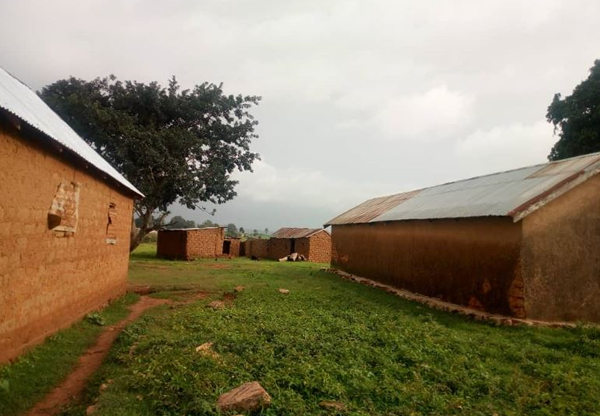
Jacob Pwakim, YIAGA executive director, told TheCable that part of the organisation’s efforts towards ensuring peaceful coexistence between the two groups was establishing peace clubs. “These peace clubs was for us to catch them young, and they are in place in eight schools. In the eight schools, we have facilitators who teach them about the issues of peace, reconciliation, pluralism and some other areas.
“We also have dialogues with the communities – the Fulani and the Biroms – around the issues bothering them?”
“Some of these things are beyond our capability”, a volunteer with another organisation who didn’t want to disclose her identity said. “From what we have seen in the field, we discovered that in most cases, the issues are beyond what we hear of. And the state government has not been helping matters. There are supposed to be measures to sustain peace even in the coming years, on the side of the government.”
LALONG SAID THE ATTACKS HAD BEEN A ‘WEEKLY AFFAIR’
Nanle, however, denied that his principal has not been doing much to ensure lasting peace, describing the claim as “far from the truth.”
He told TheCable of various security and community consultation that the state government initiated between the different ethnic groups in the local government areas.
“The plateau peace building agency is a brainchild of this administration established to work out proactive measures for violence conflict prevention,” he also said.
“The dynamics of the violent conflicts in the northern senatorial zone are complex. The Lalong administration was able to halt the attacks for almost three years which before the advent of this government have been a weekly affair.”
1 comments

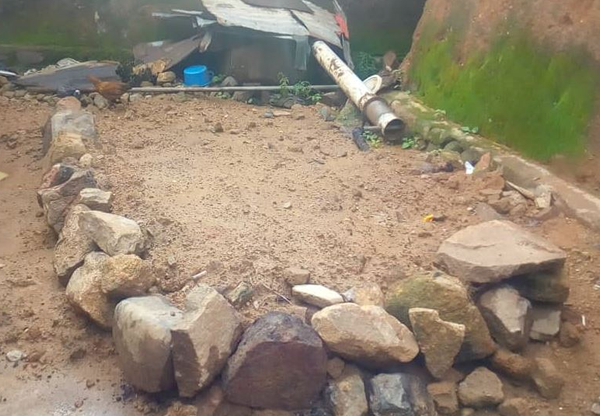


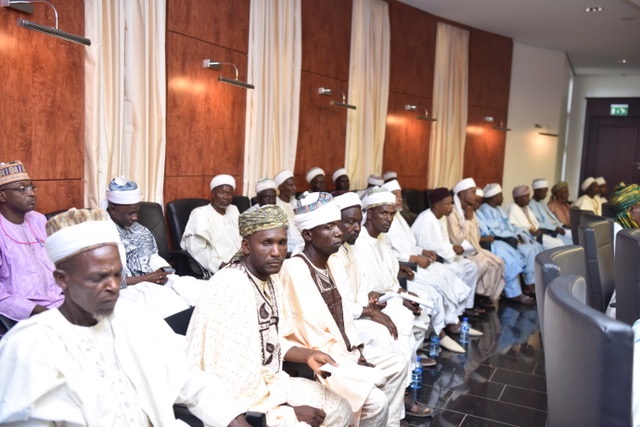
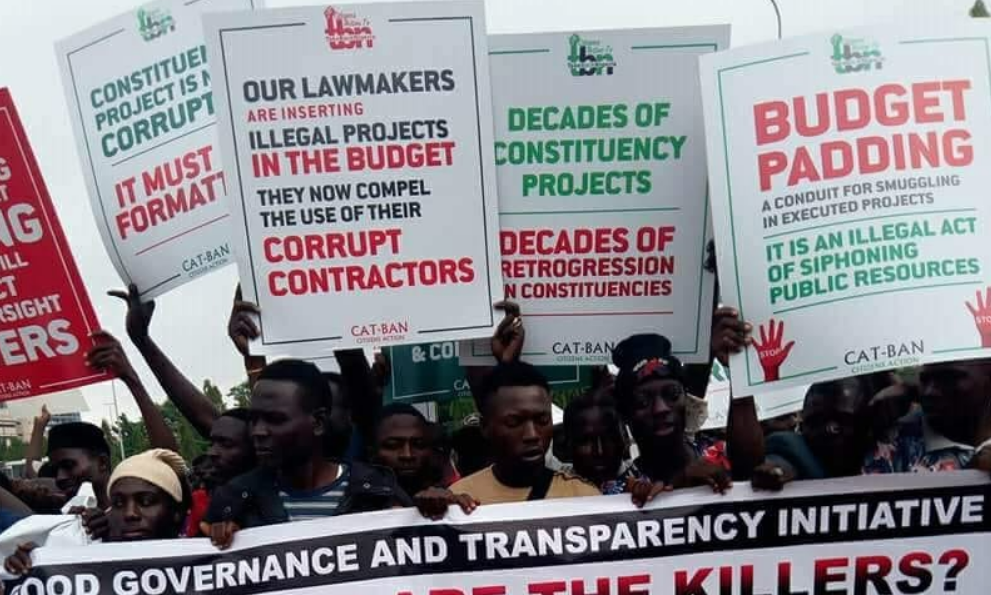

I pray justice will prevail.